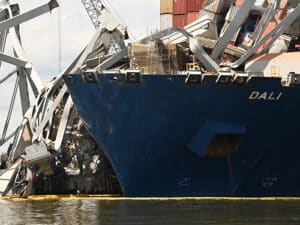
USCG issue Port Security Advisory for Libya
Written by Nick Blenkey
APRIL 2, 2014 – The U.S. Coast Guard yesterday issued an updated Port Security Advisory (PSA) for Libya. It comes not too long after the incident in which U.S. Navy SEALS took control of the tanker Morning Glory, which had been seized in the Libyan port of As-Sidra by three armed men.
Due to the continuing civil unrest and weak governmental institutions in Libya, says the PSA, the U.S. Government has concerns regarding whether the port facility security requirements of the International Ship and Port Facility Security (ISPS) Code are still being comprehensively executed and maintained.
The Coast Guard therefore recommends that vessels calling on ports in Libya take the following actions:
- Minimize ship-port interface activities such as crew changes, bunkering, and taking on stores;
- Take measures consistent with the ship’s security plan equivalent to Security Level 2;
- Ensure that each access point to the ship is guarded and that the guards have total visibility of the exterior (both landside and waterside) of the vessel;
- Attempt to clarify security responsibilities between the vessel and the port facility;
- Document/record specific actions taken in the ship’s security records required by Part A, Section 10 of the ISPS Code; and
- Report the actions taken directly to the cognizant U.S. Coast Guard Captain of the Port prior to U.S. arrival.
Implementing the above recommended security measures will generally expedite vessel entry into the U.S.
The PSA says that vessels are advised to proceed with extreme caution when approaching all Libyan oil terminals, particularly in eastern Libya, due to potential violent and criminal activity based upon recent attempts by armed, non-state actors to engage in illicit export of oil.
UN Security Council Resolution 2146 authorizes the UN Sanctions Committee to impose certain measures on vessels attempting to illicitly export crude oil from Libya. This resolution imposes several restrictions regarding loading, transporting, or discharging crude oil from Libya which may include the possible denial of port entry.





Leave a Reply
You must be logged in to post a comment.